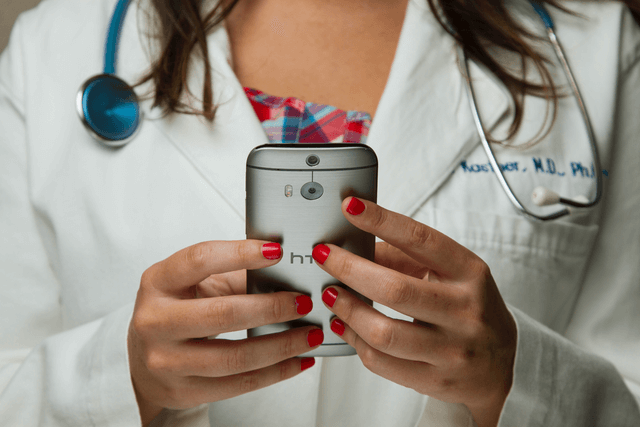Introduction
Social media plays an increasingly important role in clinical research, particularly in facilitating patient recruitment and enhancing their engagement throughout trials [1]. Its ability to reach a wide audience and promote interaction between researchers and participants makes it a valuable tool. Additionally, it helps expand the diversity of patients involved in clinical studies, a crucial factor in ensuring the representativeness of results [2].
However, nearly 80% of clinical trials face delays due to difficulties in patient recruitment [3]. While social media offers numerous opportunities, it also presents challenges regarding confidentiality, data reliability, and regulatory compliance. What is the true impact of social media on patient recruitment for clinical trials?
A Strategic Tool for Patient Recruitment
One of the main advantages of social media is its ability to enhance the recruitment of participants for clinical trials. Through targeted campaigns on platforms such as Facebook and Twitter, researchers can disseminate ads specifically directed at populations based on demographic and medical criteria [4]. It has been demonstrated that these methods, combining precise targeting, the use of digital advertising, and transparent messaging, significantly increase the number of volunteers recruited compared to traditional approaches, mainly due to their extended reach and ability to target specific groups: between July and November 2021, a social media campaign reached 33,319 unique users, resulting in 9,879 clicks, 423 completed screening forms, 132 successful contacts, 70 eligible participants, and 32 individuals who signed the informed consent form. The average recruitment cost was $51.94 per participant [5].
Other strategies reinforce this dynamic, such as the creation and management of closed Facebook groups. For example, the "Risk Communication of Cardiovascular Disease in NHS Health Checks" group gathered 289 members and enabled the collection of feedback on various aspects of the project, including participant documents, recruitment, camera positioning, and study methodology, including video recordings and follow-up interviews [6]. As part of a multifaceted approach to patient and public involvement and engagement (PPIE), a closed Facebook group was created to collect feedback on a study project focused on video recording consultations within NHS Health Checks between June 2017 and July 2019.
Optimizing recruitment also relies on advanced technologies. Sophisticated recruitment tools leverage algorithms and data analytics for precise targeting. Programmatic advertising enables the automatic optimization of campaigns based on performance indicators. AI-driven targeting adapts ads according to user behaviors and preferences [3]. Moreover, these platforms offer direct interaction between investigators and potential patients, facilitating the dissemination of information about ongoing trials and the clarification of eligibility criteria. Some institutions even organize interactive webinars where researchers answer volunteers’ questions in real-time [6].
Patient Engagement and Adherence to Protocols
Beyond recruitment, social media plays a crucial role in patient engagement throughout the clinical trial. Private discussion groups and forums allow participants to share their experiences and ask questions to investigators [3]. These interactions have shown a positive impact in reducing dropout rates and improving adherence to study protocols [4]. For example, some studies indicate that patients engaged through online support groups are more likely to follow their treatment rigorously than those who do not participate [2]. This active involvement is critical to ensuring the validity of the collected data.
Some initiatives also use social media to provide regular educational follow-ups. Platforms like YouTube and Instagram are utilized to share explanatory videos on treatment side effects and the importance of protocol adherence [4]. The use of stories and personalized reminders also helps maintain patient involvement over time.
Ethical and Regulatory Challenges
Despite these advantages, using social media in clinical research raises several challenges, particularly regarding the protection of personal data. Platforms collect and store sensitive information, raising concerns about compliance with regulations such as GDPR [1]. A study published in 2020 by revealed that many patients do not read the terms and conditions before sharing their medical information online, increasing the risk of privacy breaches [7].
Ethics committee guidelines include the review of recruitment and consent methods, verification of compliance with confidentiality and data security standards, and researcher awareness of potential risks, including cyberattacks [4]. Researchers must ensure data confidentiality and implement informed consent protocols adapted to the digital context [6]. One proposed solution involves integrating data pseudonymization systems, allowing participants to remain anonymous while contributing to the study. The Brown-Lifespan Center for Digital Health (CDH) has developed a framework to promote the effective and ethical use of social media in clinical research [2].
Another challenge is the reliability of collected data. Self-reported information from patients may be biased or incomplete, compromising the scientific quality of trials [4]. For example, a patient might downplay symptoms or fail to report certain side effects, distorting result interpretation. To mitigate these biases, integrating validated questionnaires and connected monitoring tools can improve the robustness of collected data [6].
Perspectives and Recommendations
To optimize the use of social media in clinical research, several recommendations can be implemented. Increased transparency is essential: investigators must clearly inform participants about the study’s objectives and data collection methods [1]. Strict oversight of scientific publications and institutional communications on these platforms would help limit the spread of misinformation and ensure the credibility of clinical trials.
Collaboration with regulatory bodies and patient associations helps establish guidelines ensuring the ethical use of social media [2]. Some institutions have already implemented best practice charters to regulate these new communication strategies. Developing a specific code of conduct for clinical trials on social media could strengthen participant protection and process transparency [6].
A rigorous planning of social media advertising campaigns, in compliance with current regulations (FDA, IRB), is essential to ensure their effectiveness and ethical compliance [3]. Using advanced targeting tools and optimization algorithms would enhance campaign precision and reduce patient recruitment costs [3].
Conclusion
Social media provides significant added value to clinical research by facilitating patient recruitment and strengthening their engagement. However, its use must be governed by strict rules to ensure data protection and the scientific integrity of trials. By adopting transparent strategies that comply with current regulations, researchers can fully leverage the potential of social media while ensuring reliable and ethical clinical studies.
Reference
[2] The Impact of Social Media on Clinical Research
[3] Publicité pour les essais cliniques : comment démarrer du bon pied – AutoCruitment



